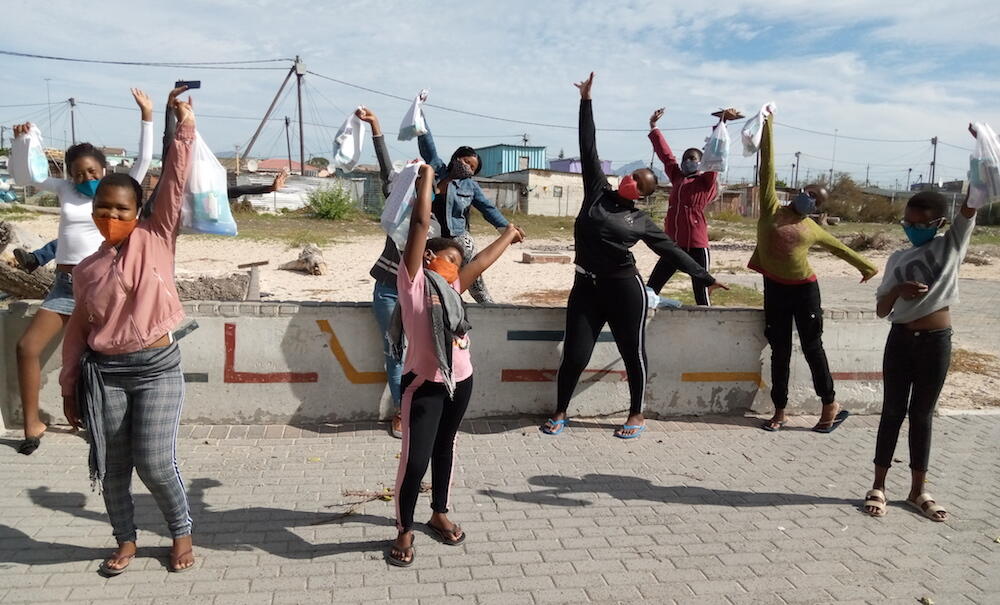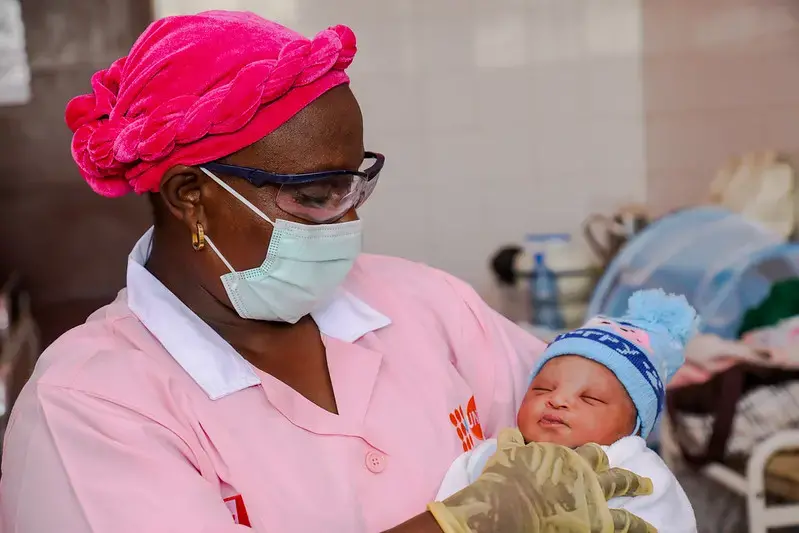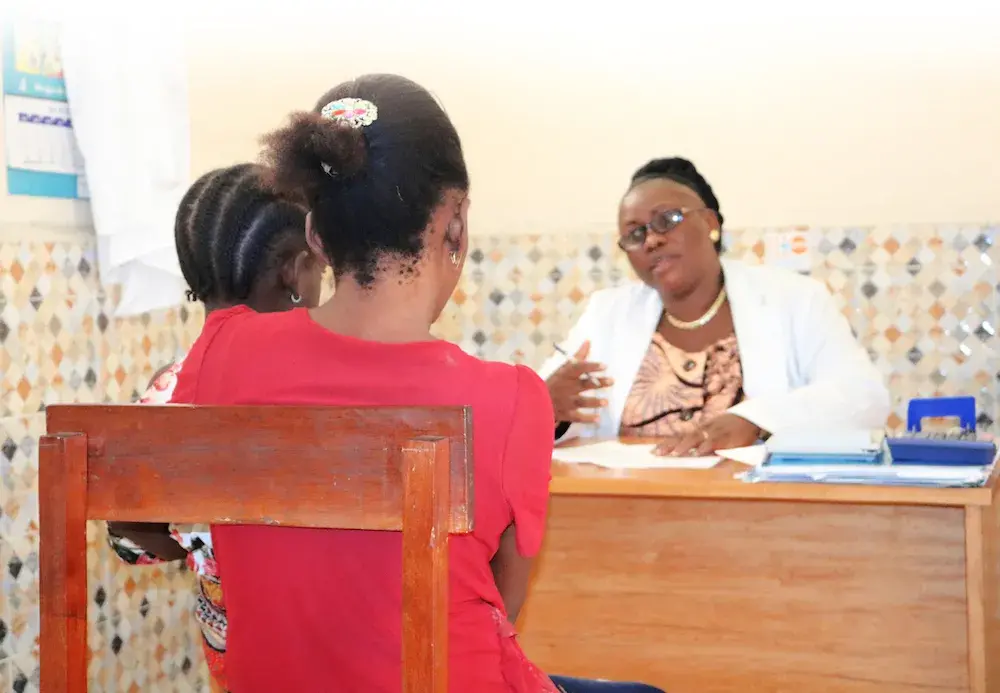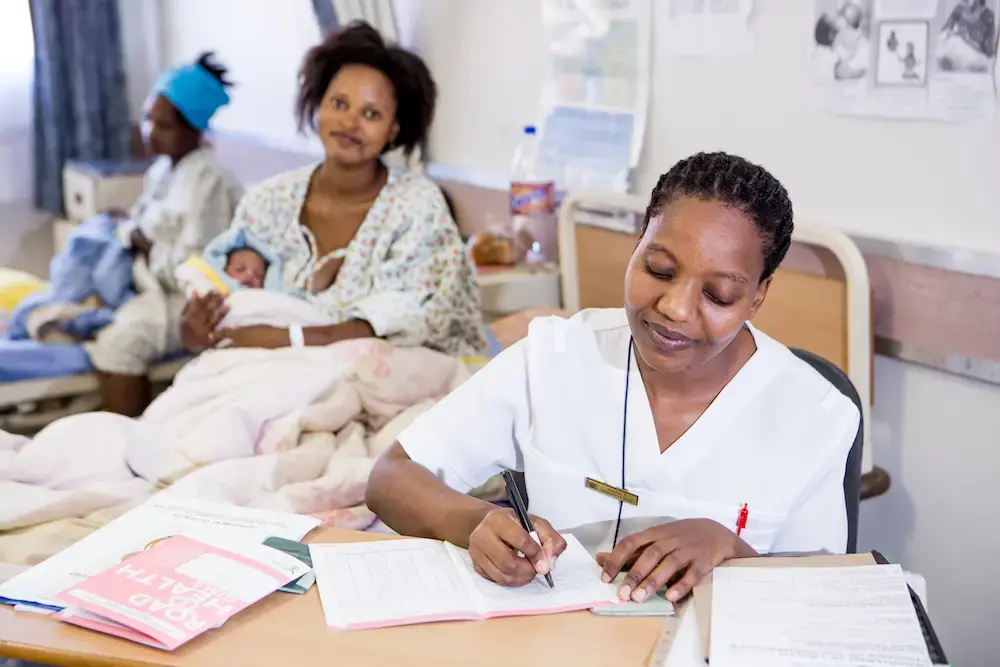On May 28, we celebrate Menstrual Hygiene Day, which is dedicated to breaking the silence around periods and promoting good menstrual hygiene management for all.
CAPE TOWN, South Africa—When environmentalist Xoli Fuyani saw a need for girl-focused support at schools on the Cape Flats in Cape Town and launched the Girls Club ten years ago, she did not realize this would lead her to a particularly meaningful and touching relationship with girls during today’s COVID-19 lockdown in South Africa.
Through Earthchild Project (ECP), Ms. Fuyani offers complementary education on the environment, health, life skills and leadership to under-resourced schools. It was while hiking with grade 7 learners for whom she runs a hiking club that something struck her.
I start difficult conversations on relationships, menstruation, and so on. I am often surprised by the lack of information and myths.
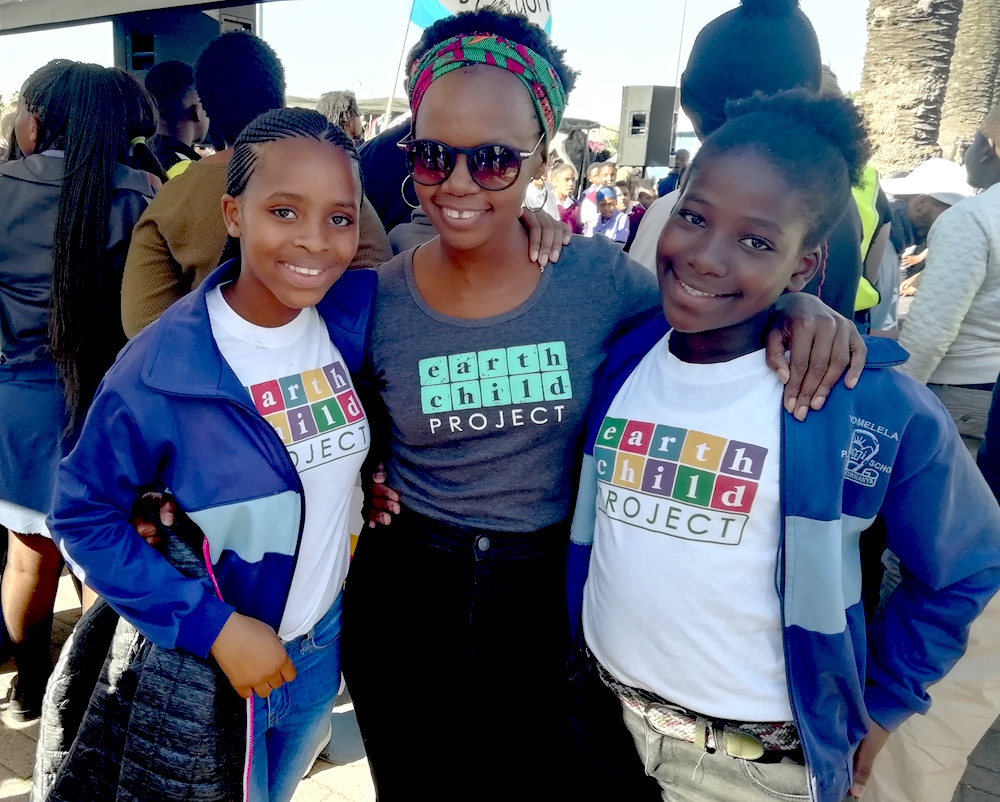
“I start difficult conversations on relationships, menstruation, and so on. I am often surprised by the lack of information and myths,” she says. She wanted to provide more formalized support to them. “I then created Girls Space for adolescent girls, where they can find support and discover new pathways to self-empowerment.”
Ms. Fuyani began with a group of 12 girls from Sakumlandela Primary in Khayelitsha. When the government announced a lockdown in March to curb COVID-19, she was working with 60 primary school learners between the ages of 12 and 14 years. “The family situations are often unstable and there are high levels of unemployment and substance abuse,” she says.
Now, because she is unable to meet up with them, she has had to find innovative ways to reach out to them. And she finds that their needs have become more pressing than ever.
Using WhatsApp groups set up with their parents, she shares educational information from their curriculum and on how to minimize the risk of contracting COVID-19. “We motivate them to be on the frontline, educating and bringing awareness to their peers and families.”
Girls taking initiative over water scarcity
It has become a two-way process, with the girls using the platform to communicate their needs. One of them is thirteen-year-old Anelisa Mgedezi, who expressed her grave concern about the water crisis her community is experiencing in Cofimvaba in the Eastern Cape, where she is visiting her grandparents. They have a Jojo [rainwater storage] tank which they use mainly for cooking, while each day they fetch water from a nearby river to wash and clean. With ECP’s support, under the lockdown she has resorted to thinking laterally.
Anelisa brings awareness to the village by making little video clips and sharing them with us to post on our social media.

is experiencing in Cofimvaba in the Eastern Cape her personal
mission.
“She brings awareness to the village by making little video clips and sharing them with us to post on our social media,” says Ms. Fuyani. “She is also educating the elders on COVID-19 and how to purify river water.”
Because in many communities the water situation is dire, the girls have created a database of communities needing water. And they have taken it upon themselves to phone the government hotline to communicate the matter. At such a young age, their sense of agency and responsibility to their communities is enormously impressive.
The Girls Space members fear that the virus may spread rapidly in their areas. “Some days, the water runs dry, leaving our girls vulnerable to the virus as they cannot wash their hands, nor use their reusable cloth [sanitary] pads. We’ve seen some girls teaching their families how to make homemade sanitizers and making videos to share with their peers,” she says.
Women and girls are particularly disadvantaged by a lack of water. They need it to maintain their personal hygiene during menstruation. This is a critical reproductive health area that ECP works in.
“Each year we distribute reusable cloth [sanitary] pads to our girls, which they wash and use again. With some informal settlements experiencing water shortages, there is a fear that our girls will go back to using rags instead of their cloth pads because of water being prioritized for cooking and washing,” Ms. Fuyani says.
We have advised our girls, because of the lack of water, to use normal pads instead of reusable cloth pads.
“We have advised our girls, because of the lack of water, to use normal pads instead of reusable cloth pads. We are also creating a space for those who cannot afford to buy pads to reach out so we can transfer funds [to them]. If this pandemic continues, we might have to look at distributing care packs and we might need donations to make that possible,” she adds.
Girls need to occupy space
Another of the girls’ biggest needs, especially now under the lockdown, is for space. “We teach our girls to take up space and build their own autonomy. But how does one practice that when living in a two-room shack with six family members?”
Theirs is an unsafe and unjust environment in which girls and women are all too frequently raped and violated. In this respect, she has shared hotline numbers for Childline and Rape Crisis. “We remind our girls of the power of speaking up. We have also made ourselves available when there is an emergency,” she says.
The lack of young people’s voices in the media, especially around their COVID-19-related issues, is of deep concern to ECP. To rectify this, they will be launching a series of podcasts in which young people will share their realities.
They have also been reaching out to the media to profile some of the girls. Anelisa and Othembele Dyantyi, aged 11, are to be featured on BBC Africa Children, sharing their stories and experiences during the lockdown. BBC Africa Children is also to do a follow-up story on the water crisis highlighted by Anelisa.
Protecting girls' health during lockdowns
To ensure the health and safety of adolescent girls during the lockdown, Ms. Fuyani highlights the following critical steps:
- Distribute water to informal settlements and villages that are currently without.
- Ensure access to education. With education transitioning to online platforms, mobile data remains the biggest challenge as most parents do not have funds for this. Ensure girls without cell phones can keep abreast with their education.
- Do not allow health systems to neglect women’s health. Prioritize the health needs of adolescent girls to ensure they are not left behind.
She also calls for young people to be given the space they need to share their issues and concerns. “Our girls are mighty warriors with so much great insight to challenge and change social norms. They are always seeking spaces and opportunities to amplify their voices and to share their truth,” Ms. Fuyani says.
* Earthchild Project works with children and teachers from eight schools in Lavender Hill and Khayelitsha, two impoverished townships in Cape Town. Their educational programmes provide practical skills that complement the academic curriculum, through yoga, life skills and environmental education classes. ECP’s mission is to create meaningful and sustainable change by providing practical skills for a holistic, balanced lifestyle with a focus on life skills, health and the environment. It aims to nurture, develop and inspire a new generation of conscious, confident and responsible young leaders.
Girls Club Space has 20 grade 7 girls per club and each club is facilitated by two graduates. The clubs focus on personal growth, body awareness, building confidence and resilience, and exposing them to new places, people and experiences. This is imparted during weekly extra mural sessions, quarterly workshops and cultural excursions.
- Lindsay Barnes

